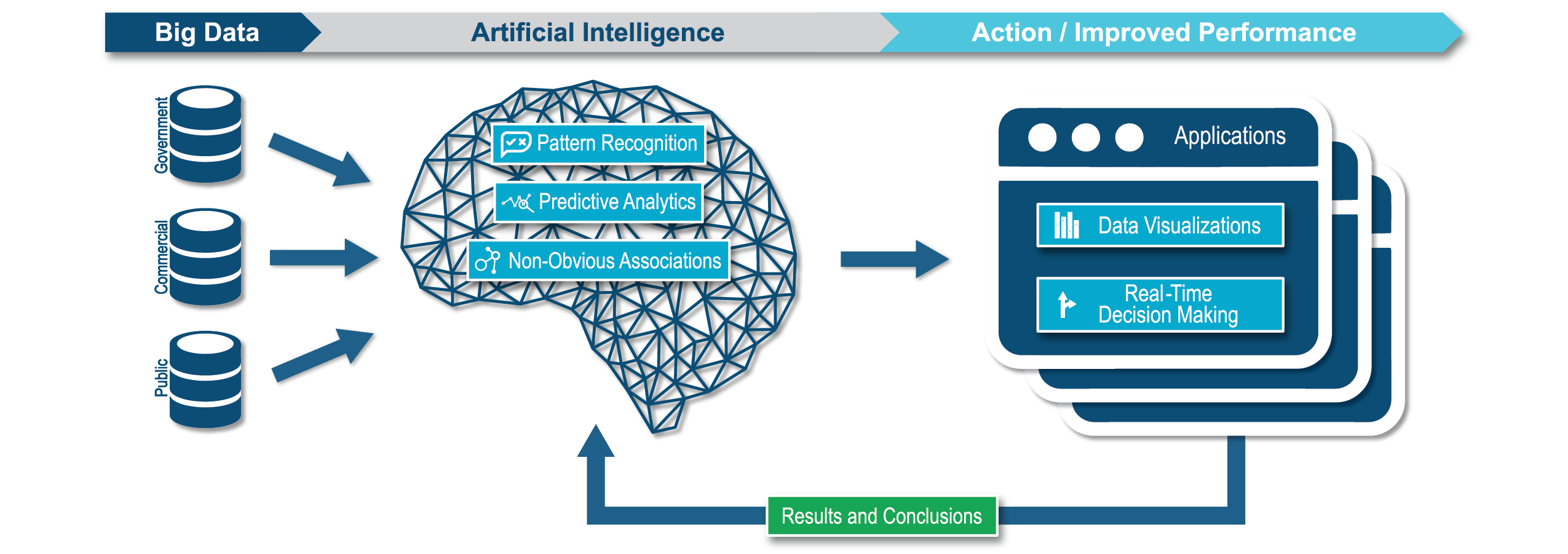Intelligent Apps and Analytics
Intelligent applications (apps) have embedded AI and analytic technologies, creating the ability to act intelligently on the feedback the app receives from its environment. Aware of their performance and interactions with the user and other applications, intelligent apps autonomously learn, adapt, and discover patterns of behavior. As an intelligent app is used, it increases what it learns and uses predictive analytics to quickly adapt to the information it receives. Intelligent apps use built-in machine learning algorithms to process vast amounts of data to continuously improve performance.
Mission Impact
- Immediate application of predictive analytics
- Immediate improvement of data-based business decisions
- Continuous business value improvement as algorithms learn and feed back into processes immediately
- Integration of big data sources formerly isolated to separate platforms
Features
- Actionable analytics
- Decision-driven data visualizations
- Near real-time business action suggestions
- Quick exposure of less-apparent associations for appropriate response
Use Cases
- Organizations with complex business processes that include multiple decision factors
- Organizations that want to use all data from very large data sets
- Organizations where immediate business realizations can dramatically increase effectiveness
Infographic

Considerations
- Functionality of currently used software can slow business buy-in for intelligent apps; progressive deployment of features will help businesses gain confidence.
- Artificial intelligence results must be interpreted before actions can be taken.
- Less apparent associations may be difficult for analysts to visualize or correlate.
- Because integration points generally cross technological and organizational boundaries, coordination and possible reorganization are required.
ValidaTek's Solution Process
- Identify how business leaders want to use analytic data
- Identify data sources available to business for decision making
- Engineer and architect big data solution
a. Assess current IT environment
b. Determine best products based on cost, approvals, and other relevant factors - Identify areas in application where predictive analytics can insert information
a. Detail questions that the analytic engine can answer at the identified point
b. Determine how analytic delivery can assist the business process - Engineer application and analytic integration, including integrated security and auditing model
- Define success through measurable criteria
a. Key performance indicators (KPIs)
b. Return on investment (ROI) - Integrate, test, and implement intelligent apps and analytics solutions with existing IT infrastructures or cloud services.
For More Information
Email: [email protected]
Phone: 703-972-2272




